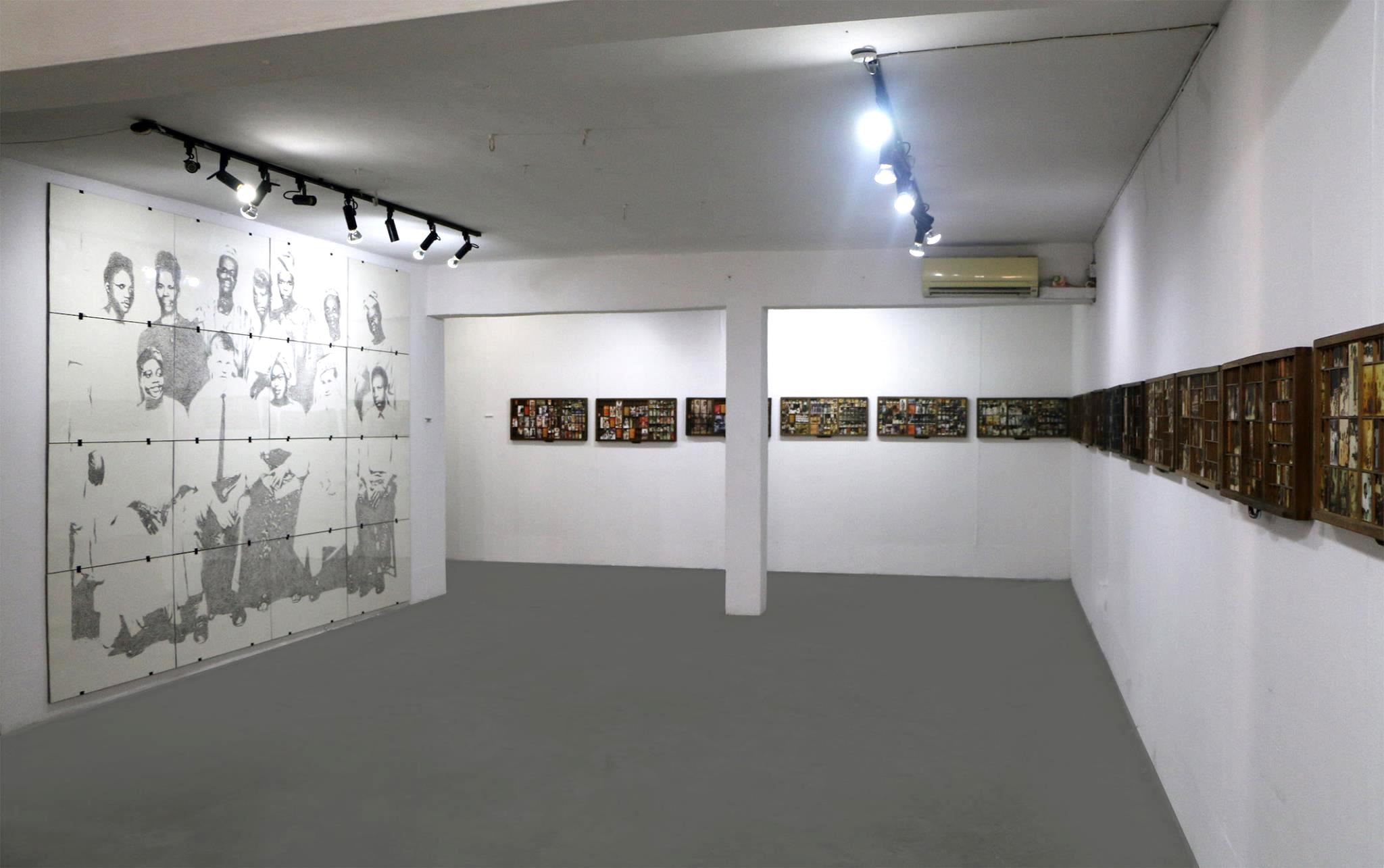Obidike Okafor spoke to the creative producer about the legacy of founder Bisi Silva and how she plans to take the institution forward.

Installation view ‘Diaspora At Home’ exhibition at CCA Lagos. Photo: CCA Lagos
Contemporary And: You have been part of the CCA story from its inception in 2007. Did it ever cross your mind that you would one day be responsible for its daily running?
Oyindamola Fakeye: I actually haven’t been a part of CCA since its inception. I met Bisi [Silva, the CCA’s founder and creative director] not long after the centre opened, sometime in late 2007 or early 2008. I was introduced to her by the head curator of the Haywood Gallery at the time, Ralph Rugoff, and she invited me to visit if I ever came to Nigeria. I headed to Lagos a few months later, and after that meeting, she asked if I would be interested in an opportunity to train with her and that if so I would have to relocate to Nigeria [from the UK]. Just like that – in 2008, just before the CCA’s first anniversary – I was in Lagos working under Bisi Silva.
As for whether it ever crossed my mind that I would be responsible for it one day, looking back to that time I would never have believed that we would lose Bisi so soon.
C&: Your appointment comes as CCA marks the second year of remembrance of Bisi Silva. What was your relationship with her like?
OF: I use to call Bisi my “aunt mum.” She really was more than a mentor, she was like a mother to me. Our relationship was not just business – she really was interested in my life, she cared for me. And I still say that, mourning her two years on.
C&: How do you hope to keep the Bisi Silva legacy alive?
OF: A couple of things come to mind. Number one is “people first.” CCA was able to thrive because Bisi was relational. She was a giver, she poured into people around her – whether it was curators, historians, critics, or artists, she was always pouring into people and building capacity. She never stood in the way of anybody’s progress. I think it is amazing.
Another thing is local thinking. As much as Bisi was a global figure, she was interested in the local – developing local artists, developing the local ecosystem, and building relationships with local entities and organizations. She had relationships with the art school, students, collectives and art organizations, and was involved in setting up [Lagos’s international art fair] Art X.
C&: What CCA programs, events, cultures, and policies would you like to keep?
OF: The Asiko Art School is an important part of CCA Lagos, and we are looking forward to restarting that in the next few months. The Art-i-culate talks program as well. Conversations are vital. I want to be true to Bisi’s intention for the organization, and the library is one of its most crucial structures – so really developing our library and access to knowledge.
More generally, we have a culture of sharing, of working together, and that is something we will continue to do – working internationally as well, and also leveraging our alumni.
C&: What are some of the things you would like to change?
OF: I won’t use the word “change” – I would say “build on.” I am looking forward to increasing and improving access to the collection and the knowledge contained in the library by going digital and having a much stronger digital presence. Curator Iheanyi Onwuegbucha has already started the process of digitizing the library. That is an important thing for CCA.
C&: How will you respond to people who will use Bisi Silva’s achievements as a yardstick for your success?
OF: It will always be interesting, filling the shoes of someone who is so large and important as Bisi, and of course, there will be comparisons. I am never going to be her, but I believe that my time training under her and having that relationship with her means has had a heavy influence on my practice. I hope that my legacy will be just as impactful. I hope that when people look back they will say that I helped people, that I was committed to my role, and that I made a difference.
Based in Lagos, Obidike Okafor is a content consultant, freelance art journalist, and documentary filmmaker.
More Editorial